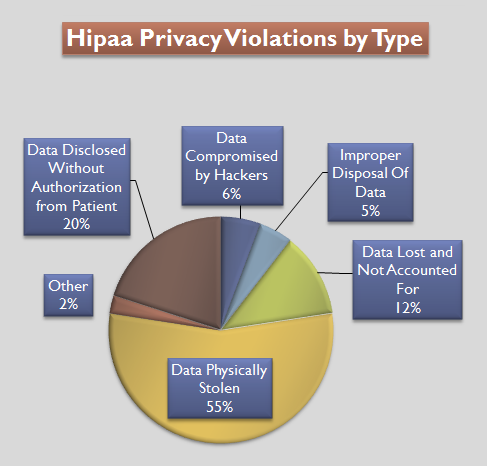|
Information Governance
Information governance, or IG, is the overall strategy for information at an organization. Information governance balances the risk that information presents with the value that information provides. Information governance helps with legal compliance, operational transparency, and reducing expenditures associated with legal discovery. An organization can establish a consistent and logical framework for employees to handle data through their information governance policies and procedures. These policies guide proper behavior regarding how organizations and their employees handle information whether it is physically or electronically. Information governance encompasses more than traditional records management. It incorporates information security and protection, compliance, data quality, data governance, electronic discovery, risk management, privacy, data storage and archiving, knowledge management, business operations and management, audit, analytics, IT management, master ... [...More Info...] [...Related Items...] OR: [Wikipedia] [Google] [Baidu] |
Legal Discovery
Discovery, in the law of common law jurisdictions, is a phase of pretrial procedure in a lawsuit in which each party, through the law of civil procedure, can obtain Evidence (law), evidence from other parties. This is by means of methods of discovery such as interrogatories, Request for production, requests for production of documents, request for admissions, requests for admissions and Deposition (law), depositions. Discovery can be obtained from nonparties using subpoenas. When a discovery request is objected to, the requesting party may seek the assistance of the court by filing a motion to compel discovery. Conversely, a party or nonparty resisting discovery can seek the assistance of the court by filing a motion for a protective order. History Discovery evolved out of a unique feature of early Equity (law), equitable pleading procedure before the English Court of Chancery: among various requirements, a plaintiff's bill in equity was required to plead "positions". These we ... [...More Info...] [...Related Items...] OR: [Wikipedia] [Google] [Baidu] |
Metadata
Metadata (or metainformation) is "data that provides information about other data", but not the content of the data itself, such as the text of a message or the image itself. There are many distinct types of metadata, including: * Descriptive metadata – the descriptive information about a resource. It is used for discovery and identification. It includes elements such as title, abstract, author, and keywords. * Structural metadata – metadata about containers of data and indicates how compound objects are put together, for example, how pages are ordered to form chapters. It describes the types, versions, relationships, and other characteristics of digital materials. * Administrative metadata – the information to help manage a resource, like resource type, and permissions, and when and how it was created. * Reference metadata – the information about the contents and quality of Statistical data type, statistical data. * Statistical metadata – also called process data, may ... [...More Info...] [...Related Items...] OR: [Wikipedia] [Google] [Baidu] |
Sarbanes–Oxley Act
The Sarbanes–Oxley Act of 2002 is a United States federal law that mandates certain practices in financial record keeping and reporting for corporations. The act, , also known as the "Public Company Accounting Reform and Investor Protection Act" (in the Senate) and "Corporate and Auditing Accountability, Responsibility, and Transparency Act" (in the House) and more commonly called Sarbanes–Oxley, SOX or Sarbox, contains eleven sections that place requirements on all American public company boards of directors and management and public accounting firms. A number of provisions of the Act also apply to privately held companies, such as the willful destruction of evidence to impede a federal investigation. The law was enacted as a reaction to a number of major corporate and accounting scandals, including Enron and WorldCom. The sections of the bill cover responsibilities of a public corporation's board of directors, add criminal penalties for certain misconduct, and ... [...More Info...] [...Related Items...] OR: [Wikipedia] [Google] [Baidu] |
Gramm–Leach–Bliley Act
The Gramm–Leach–Bliley Act (GLBA), also known as the Financial Services Modernization Act of 1999, () is an act of the 106th United States Congress (1999–2001). It repealed part of the Glass–Steagall Act of 1933, removing barriers in the market among banking companies, securities companies, and insurance companies that prohibited any one institution from acting as any combination of an investment bank, a commercial bank, and an insurance company. With the passage of the Gramm– Leach– Bliley Act, commercial banks, investment banks, securities firms, and insurance companies were allowed to consolidate. Furthermore, it failed to give to the SEC or any other financial regulatory agency the authority to regulate large investment bank holding companies. The legislation was signed into law by President Bill Clinton. A year before the law was passed, Citicorp, a commercial bank holding company, merged with the insurance company Travelers Group in 1998 to form the cong ... [...More Info...] [...Related Items...] OR: [Wikipedia] [Google] [Baidu] |
Health Insurance Portability And Accountability Act
The Health Insurance Portability and Accountability Act of 1996 (HIPAA or the Ted Kennedy, Kennedy–Nancy Kassebaum, Kassebaum Act) is a United States Act of Congress enacted by the 104th United States Congress and signed into law by President Bill Clinton on August 21, 1996. It aimed to alter the transfer of healthcare information, stipulated the guidelines by which personally identifiable information maintained by the healthcare and healthcare insurance industries should be protected from fraud and theft, and addressed some limitations on Health insurance in the United States, healthcare insurance coverage. It generally prohibits Health professional, healthcare providers and businesses called covered entities from disclosing protected information to anyone other than a patient and the patient's authorized representatives without their consent. The bill does not restrict patients from receiving information about themselves (with limited exceptions). Furthermore, it does not proh ... [...More Info...] [...Related Items...] OR: [Wikipedia] [Google] [Baidu] |
Payment Card Industry Data Security Standard
The Payment Card Industry Data Security Standard (PCI DSS) is an information security standard used to handle credit cards from major card brands. The standard is administered by the Payment Card Industry Security Standards Council, and its use is mandated by the card brands. It was created to better control cardholder data and reduce credit card fraud. Validation of compliance is performed annually or quarterly with a method suited to the volume of transactions: * Self-assessment questionnaire (SAQ) * Firm-specific Internal Security Assessor (ISA) * External Qualified Security Assessor (QSA) History The major card brands had five different security programs: * Visa's Cardholder Information Security Program * Mastercard's Site Data Protection *American Express's Data Security Operating Policy * Discover's Information Security and Compliance * JCB's Data Security Program The intentions of each were roughly similar: to create an additional level of protection for card issuers ... [...More Info...] [...Related Items...] OR: [Wikipedia] [Google] [Baidu] |
Foreign Account Tax Compliance Act
The Foreign Account Tax Compliance Act (FATCA) is a 2010 U.S. federal law requiring all non-U.S. foreign financial institutions (FFIs) to search their records for customers with indicia of a connection to the U.S., including indications in records of birth or prior residency in the U.S., or the like, and to report such assets and identities of such persons to the United States Department of the Treasury. FATCA also requires such persons to report their non-U.S. financial assets annually to the Internal Revenue Service (IRS) on form 8938, which is in addition to the older and further redundant requirement to report them annually to the Financial Crimes Enforcement Network (FinCEN) on form 114 (also known as 'FBAR'). Like U.S. income tax law, FATCA applies to U.S. residents and also to U.S. citizens and green card holders residing in other countries. FATCA applies to all subjects identified as U.S. person. All U.S. citizens are U.S. person by default, but a non-U.S.-citizen ... [...More Info...] [...Related Items...] OR: [Wikipedia] [Google] [Baidu] |
Chief Marketing Officer
A chief marketing officer (CMO), also called a chief brand officer (CBO), is a C-suite corporate executive responsible for managing marketing activities in an organization. The CMO leads brand management, marketing communications (including advertising, promotions and public relations), market research, product marketing, distribution channel management, pricing, customer success, and customer service. The CMO typically reports to the chief executive officer and may be reported to by senior vice presidents, vice presidents, directors, and other senior marketing managers. Historically, some jurisdictions have conferred legal responsibility upon marketing chiefs, but the use of modern-day titles typically does not correspond to a legally defined role. A study from consulting firm Spencer Stuart in 2021 showed that women made up 47% of CMO positions in 2020, an increase from the 43% reported in 2019. 13% of CMOs had a racially or ethnically diverse background in 2020, down from ... [...More Info...] [...Related Items...] OR: [Wikipedia] [Google] [Baidu] |
Senior Management
Senior management, executive management, or upper management is an occupation at the highest level of management of an organization, performed by individuals who have the day-to-day tasks of managing the organization, sometimes a company or a corporation. Overview Executive managers hold powers delegated to them with and by authority of a board of directors and/or the shareholders. Generally, higher levels of responsibility exist, such as a board of directors and those who own the company (shareholders), but they focus on managing the senior or executive management instead of on the day-to-day activities of the business. The executive management typically consists of the heads of a firm's product and/or geographic units and of functional executives such as the chief financial officer, the chief operating officer, and the chief strategy officer. In project management, senior management authorises the funding of projects. Compare: Senior management are sometimes referred to, ... [...More Info...] [...Related Items...] OR: [Wikipedia] [Google] [Baidu] |
General Data Protection Regulation
The General Data Protection Regulation (Regulation (EU) 2016/679), abbreviated GDPR, is a European Union regulation on information privacy in the European Union (EU) and the European Economic Area (EEA). The GDPR is an important component of EU privacy law and human rights law, in particular Article 8(1) of the Charter of Fundamental Rights of the European Union. It also governs the transfer of personal data outside the EU and EEA. The GDPR's goals are to enhance individuals' control and rights over their personal information and to simplify the regulations for international business. It supersedes the Data Protection Directive 95/46/EC and, among other things, simplifies the terminology. The European Parliament and Council of the European Union adopted the GDPR on 14 April 2016, to become effective on 25 May 2018. As an EU regulation (instead of a directive), the GDPR has direct legal effect and does not require transposition into national law. However, it also provide ... [...More Info...] [...Related Items...] OR: [Wikipedia] [Google] [Baidu] |


